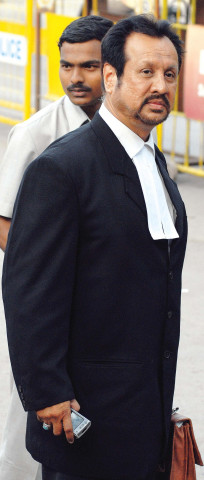Faridkot’s shame

The sleepy little village some two hours from Lahore shot into the headlines across the globe after the main suspect of the Mumbai attacks confessed it was his hometown. And life in Faridkot was never the same again. I was returning to the village after a year and a half. Last time, no one – including the nazim – was willing to even acknowledge Kasab had ever lived there.
As for his family, after a brief interaction with the media at the time Kasab was identified, they just disappeared from Faridkot. Where did they go? Were they abducted by the agencies? Which one was their house? Who were their friends? The villagers were maintaining a stony silence. I finally located Kasab’s house on my own. But the person who answered the door – one Ghafoor – swore he’d been living in the house for 20 years and knew of no one in the village who had the surname Kasab.
Faridkot remains one of the only places I’ve ever been completely stumped for information. But the situation in the village seemed to justify this. The place was crawling with spooks. People in rural Punjab are usually a hospitable, friendly lot. Even if they won’t talk on camera, they’ll chit chat over tea or lassi. That time, I realised how lepers must have felt.
Every time I turned around, someone would be scurrying off to avoid talking to me. I thought this visit would be different. I was returning to Faridkot after the pronouncement of the Indian court’s verdict, long after the Pakistani government acknowledged that Kasab was indeed a citizen. How had his hometown taken the verdict? Ghafoor remembered both me and the story he’d told me, which he dutifully parroted again. His neighbour Mian Tariq, too, was eager to corroborate Ghafoor’s version.
“Ajmal Kasab never lived here nor did his family; they probably belong to the Indian Faridkot,” he sniffed. So what about the government’s admission? “This is just an attempt to defame our village and the Pakistani government should be ashamed of itself for succumbing to international pressure and lying about the facts,” he maintained. As a crime reporter, one tends to get a feel for crowds. Almost always, people shout each other down, contradict each other’s accounts, especially where TV cameras are involved.
The Faridkot lot was peculiar in the sense that they all had the same version. “He isn’t from among us; why would we be agitated by the verdict against him?” demanded the people outside Kasab/ Ghafoor’s house in querulous tones. The day stretched on and the crowds thinned. And finally a break: a resident Jameel volunteered to tell me ‘the truth’ if I promised to turn the camera off. “Yes, Ajmal Kasab was a resident of this village,” he began. “His father was a poor vendor who worked both in Lahore and here.
Ajmal studied in the local primary school and ran away from home at the age of fourteen.” What then? “Well, he reappeared shortly before the Mumbai attacks. Afterwards, his family vanished too,” says Jameel. So where is the family now? “They live nearby but I can’t tell you where exactly,” he says. Another resident Rab Nawaz corroborates this. “The family was recently spotted at a wedding here but they are always under strict surveillance and are not allowed to interact with other people,” says Nawaz.
Why does everyone deny their existence? “Obviously because they’re afraid of the agencies and the village influentials,” answers Nawaz, rolling his eyes. “This scandal has brought ruin to the family.” “Many members of Kasab’s extended family are still living in Faridkot and Ghafoor is actually his maternal uncle,” confides another resident. “But everyone’s silent because all records of this family’s existence including voter lists and Union Council records have been eliminated.”
He walks me to my car, desperately willing me to understand. “Look, we have no choice. It isn’t just Kasab’s family that is under surveillance – even the other people of Faridkot are facing huge difficulties in finding livelihood as the employers fear their being under surveillance.” And so, the entire village feigns collective amnesia.


















COMMENTS
Comments are moderated and generally will be posted if they are on-topic and not abusive.
For more information, please see our Comments FAQ